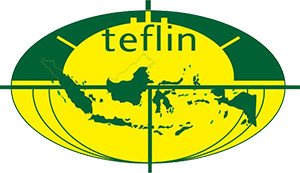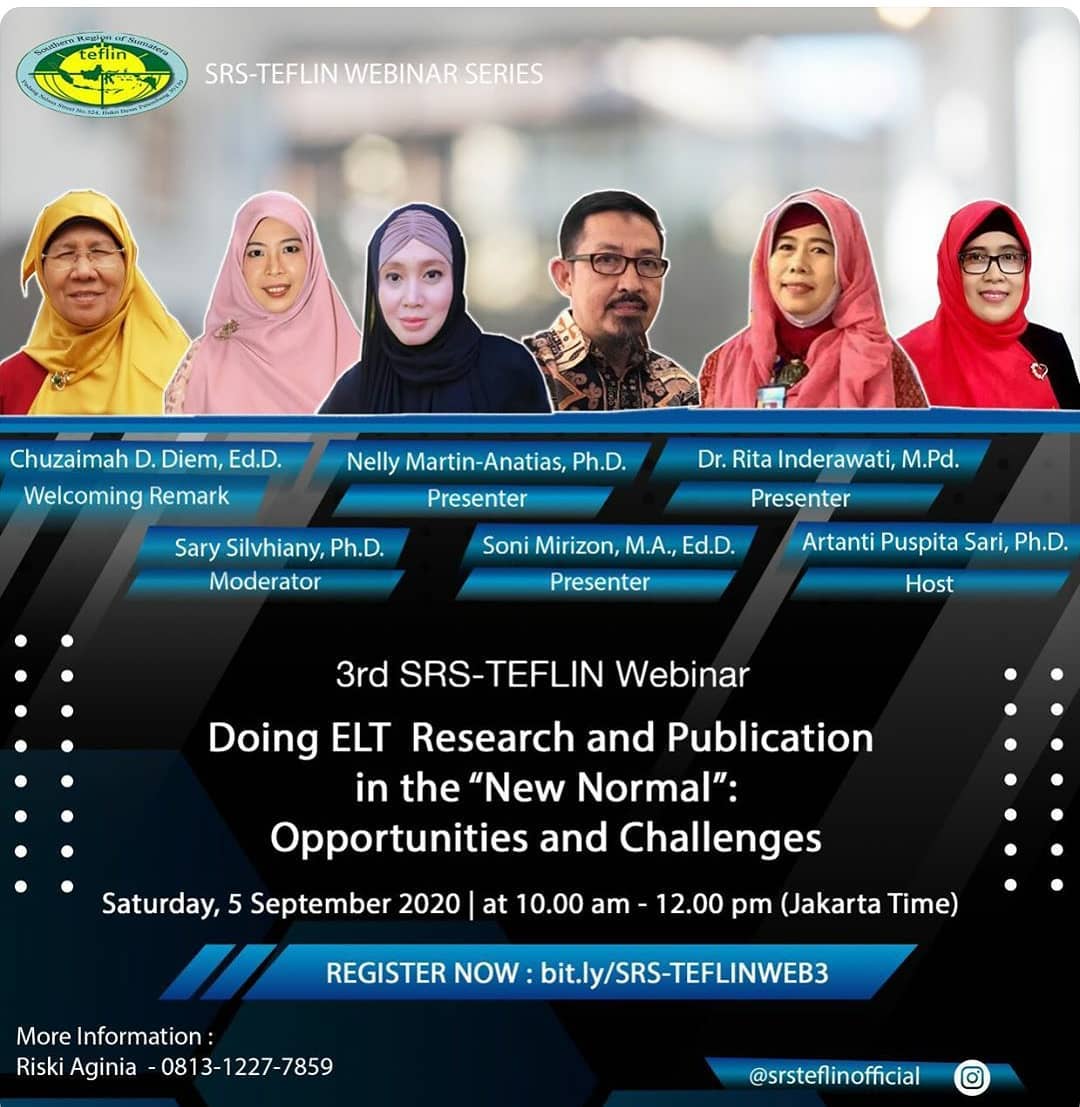SRS-TEFLIN has successfully hosted the webinar on Saturday, September 5, 2020. It focused on the theme “Doing ELT Research and Publication in the ‘New Normal’: Opportunities and Challenges”.
The event was opened by Artanti Puspita Sari, Ph.D., the webinar coordinator followed by Chuzaimah D. Diem, Ed. D., the SRS-TEFLIN Coordinator, who also gave a welcoming remark. Led by the moderator, Sary Silvhiany, Ph.D., the webinar presented three speakers. The first speaker, Nelly Martin-Anatia, Ph.D from the Auckland University of Technology, presented the topic on “Conducting Research During a Global Pandemic: Opportunities & Challenges”. She shared her experience of doing research amidst a national lockdown in New Zealand by underlining that, “we should not regard this as a problem, but have to look from another perspective and make it as an opportunity. As sociolinguists, we can collect all the information and signs used by the government as a means of socializing lockdowns that we find on public transportation, on roads and other public facilities.” The second speaker, Dr. Rita Inderawati from Sriwijaya University, discussed about “Exploring and Producing Learning Products for ELT through Development Research amidst the New Normal”. She explained about the development research that could be done during this pandemic. The last speaker, Soni Mirizon, Ed.D.from Sriwijaya University, discussed about “ELT Research in Pandemic Era: Policy, Problem, and Possibility”. He highlighted what kind of research can be done during a pandemic to emphasize the internet-based research, namely the internet as a tool and a place to do it.
As expected, the 3rd SRS-TEFLIN Webinar has attracted a lot of participants’ interest. Based on registrant data collected by the committee via Google Form, there were 537 registered people. The participants were lecturers, researchers, teachers, school supervisors, students, and many others. Some of them came from other countries such as Australia, Hungary, Myanmar, Laos, New Zealand, and the Philippines, while most came from various regions in Indonesia such as Bali, Jakarta, Yogyakarta, Malang, Surabaya, Bandung, Banten, Makassar, Aceh, Padang, Medan, Bangka. , Bengkulu, Jambi, Lampung, Palembang, and other areas in Indonesia.

